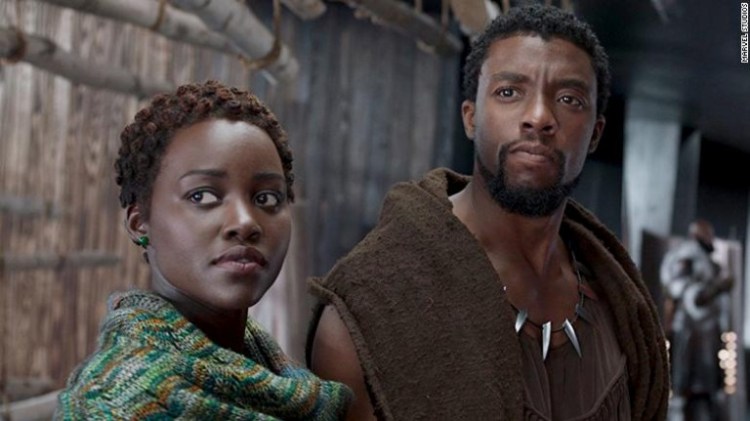By Amal Matan
It’s understandable that most Muslims approach any representation of themselves in Hollywood with skepticism and hesitance. Hollywood filmmakers don’t exactly have the best track record in nuanced, 3-dimensional portrayals of contemporary Muslims and their lives. Instead, films exploit feverish Islamophobia for profit. Releases like “12 Hours,” “American Sniper,” “White House Down,” “Iron Man,” etc., typically rely on Islamophobic tropes and orientalism.
It’s even rarer to find an American-produced film or television show that captures the raw tension in the dramatic, complex socio-political situations that gave rise to the War on Terror.
That said, terrorism exists. It affects our world and our lives. It’s unreasonable to expect art to be filtered through a sensitivity censor of squeaky-clean denial. Pretending like it doesn’t exist does no one anywhere any good.
Honest storytelling has the capacity to change lives. The best films reveal truths that challenge the way we see the world. “Black Panther” is a cultural, historical moment. Penned by Ryan Coogler and Joe Robert Cole, the clever script delivers slick scenes and awe-inspiring moments. The ingenuity of this timely cinematic masterpiece honors the deep, rich history of African storytelling. In my own humble opinion, there has never been a film like this before. It seamlessly incorporates the complexity of African history and politics while envisioning and channeling the challenges of the African present and future.

Black Panther’s depiction of terrorism is a reflection of Boko Haram’s underreported wrath on sub-Saharan Africans. In an early scene, King T’Challa (the Black Panther) interrupts Nakia’s covert rescue operation. The introductory scene gives the viewer enough information to tell us that Nakia, a Wakandan spy, is an ally to the underprivileged. She, as a Black Woman, is dedicated to liberating fellow Africans even at her own personal risk.
Nakia’s dismay sets the tone of the scene’s power dynamics. King T’Challa’s assistance is more of an interruption than an asset to her high-risk mission. His presence is conditional upon requesting her presence at his coronation ceremony. She’s not a passive ‘strong female character’. Nakia intervenes, defending one of the child soldiers from T’Challa. She scolds the fledgling king, telling the Black Panther, “He’s just a boy.” Her introduction and involvement are essential to the movie’s themes.
The film doesn’t fully unpack the underlying themes exploring the causation of radicalization until the introduction of Erik Kilmonger. It’s through Nakia we see that a recognition that the boy is another victim of the aggregating geo-political gashes left in Africa by colonialism — just like the kidnapped women and girls.
In Nakia’s scene, you see some semblance of anti-imperial, pan-African feminism. Unlike the horrific and overdone White Savior Complex in “Batman v Superman”, where Superman destroys a whole fictional East African village, brutally killing archetypical Black terrorists without question to save Lois Lane.
Despite the fact that discourse about terrorism is usually laced with vicious Islamophobia, it is possible to have discussions about extremism, radicalization, and terrorism without being inherently Islamophobic or racist.
They’re a reflection of how non-Black, non-African Muslims are unaware of the very real African struggle against the scourge that is terrorism.
“Black Panther’s” depiction of terrorism is constructive. Nakia builds on the scene later in Wakanda where she pitches to T’Challa that Wakanda should provide aid and assistance better than other foreign colonizing nations.
Crying “Islamophobia!” prematurely without understanding the nuances of the film and the legacy of Western and Arab colonialism in Africa’s geopolitical challenges is at least ill-advised. Pieces parading on these poorly constructed understandings participate in the ongoing erasure of Africa’s importance in global politics. They’re a reflection of how non-Black, non-African Muslims are unaware of the very real African struggle against the scourge that is terrorism.
MuslimLink’s Hodan Ahmed Mohamed reminds us that in 2015 alone, Boko Haram killed more people than Daesh (ISIS). More recently, according to the 2017 Global Terrorism Index from the Institute for Economics & Peace “…the MENA region dominates in terms of absolute numbers of attacks and fatalities. However, sub-Saharan Africa has been the most deadly region in terms of fatalities per attack…”
In addition, in the media, and at the mosque, Black casualties are deemed less worthy of attention, thoughts, and prayers. Think #BringBackOurGirls.
Yes, one of the guys says “wallahi” — however, “wallahi” is part of the Black lexicon. Regardless of whether the kidnapped are Muslim, the scene still prompts a constructive conversation about solidarity and empowerment. Black Panther isn’t Islamophobic. If anything, Nakia’s quest as an African taking selfless empowerment into her own hands to help her own is exactly what we need to see on screen.
Not everything is about or for you, colonizer.

